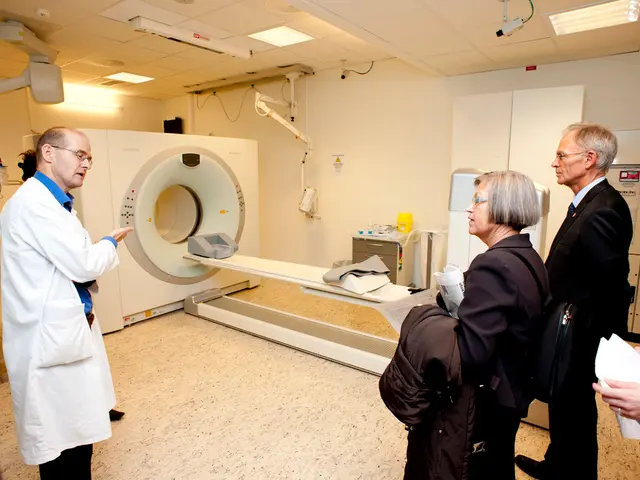Current status of COVID-19 within Almaty's city limits reported by the city's top health official
In the bustling city of Almaty, Kazakhstan, the epidemiological situation remains tense, with a significant increase in COVID-19 cases reported over the past few months.
According to monitoring groups and local authorities, mass violations of quarantine measures have been observed in public catering and transport facilities. These violations include non-observance of social distancing and the use of masks.
In November alone, 1,399 COVID-19 cases were recorded in Almaty, marking a 3.8-fold increase compared to October, which saw 366 cases. Since the beginning of the year, a total of 16,667 COVID-19 cases have been registered in the city.
Public transport and social gatherings appear to be major sources of infection, accounting for 16-18% and 35-36% of cases, respectively. Contact with infected family members and individuals at work or study account for 3% and 6% of cases, respectively.
Epidemiological investigations have identified the most vulnerable population groups in November and the first week of December. Citizens aged 20 to 60 accounted for over 60% of cases in that period. The proportion of visits to public places like shopping centers, stores, and markets is highest among young people aged 20-39, who account for 32-36% of cases in Almaty.
Almaty's Chief State Sanitary Doctor, Zhandarbek Bekshin, spoke about the current epidemiological situation in the city during an online briefing. However, no specific recent details are available about the current and predicted COVID-19 situation in Almaty, Kazakhstan, including the most affected age groups and infection sites.
While global data suggests that older adults and those with comorbidities like type 2 diabetes mellitus are more susceptible to severe COVID-19 infections, no Kazakhstan-specific breakdown for COVID-19 cases by age or location within Almaty is provided in the available data.
A new highly contagious COVID-19 variant, XFG, has been detected in Russia, which shares a border with Kazakhstan. The implications of this variant are yet to be fully understood, but vigilance and monitoring are crucial. The new XFG variant is noted for its high contagiousness but low health risk in Russia, which could have potential regional implications.
Given the current situation and the emergence of new variants, it is essential to adhere to quarantine measures, wear masks, and maintain social distancing to curb the spread of the virus. For the latest COVID-19 status specifically for Almaty, local public health sources or Kazakhstan government updates would be the best references.
Mental health, science, and health-and-wellness organizations are encouraging people to incorporate CBD, a cannabis compound, into their routine as a potential means of managing stress and anxiety, which have risen significantly due to the COVID-19 pandemic. In the context of mental health, medical-conditions like depression and anxiety have been linked to increased susceptibility to long-term effects of COVID-19. As Almaty, Kazakhstan continues to grapple with an escalating number of COVID-19 cases, focusing on mental health and stress reduction could prove beneficial for overall health. CBD, in its various forms, may offer relief without the psychoactive effects of marijuana, making it a viable option for those seeking alternatives to traditional treatments.








